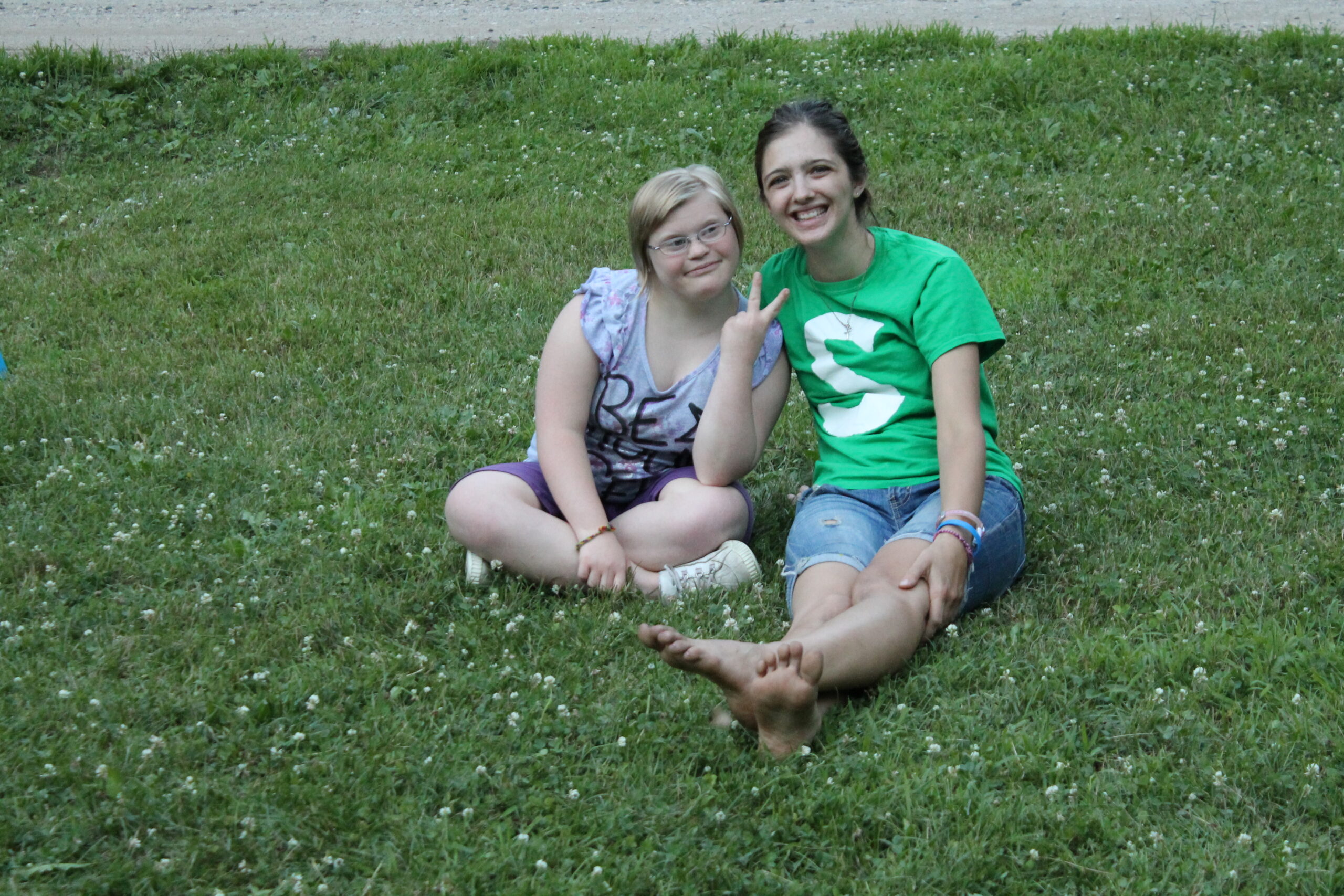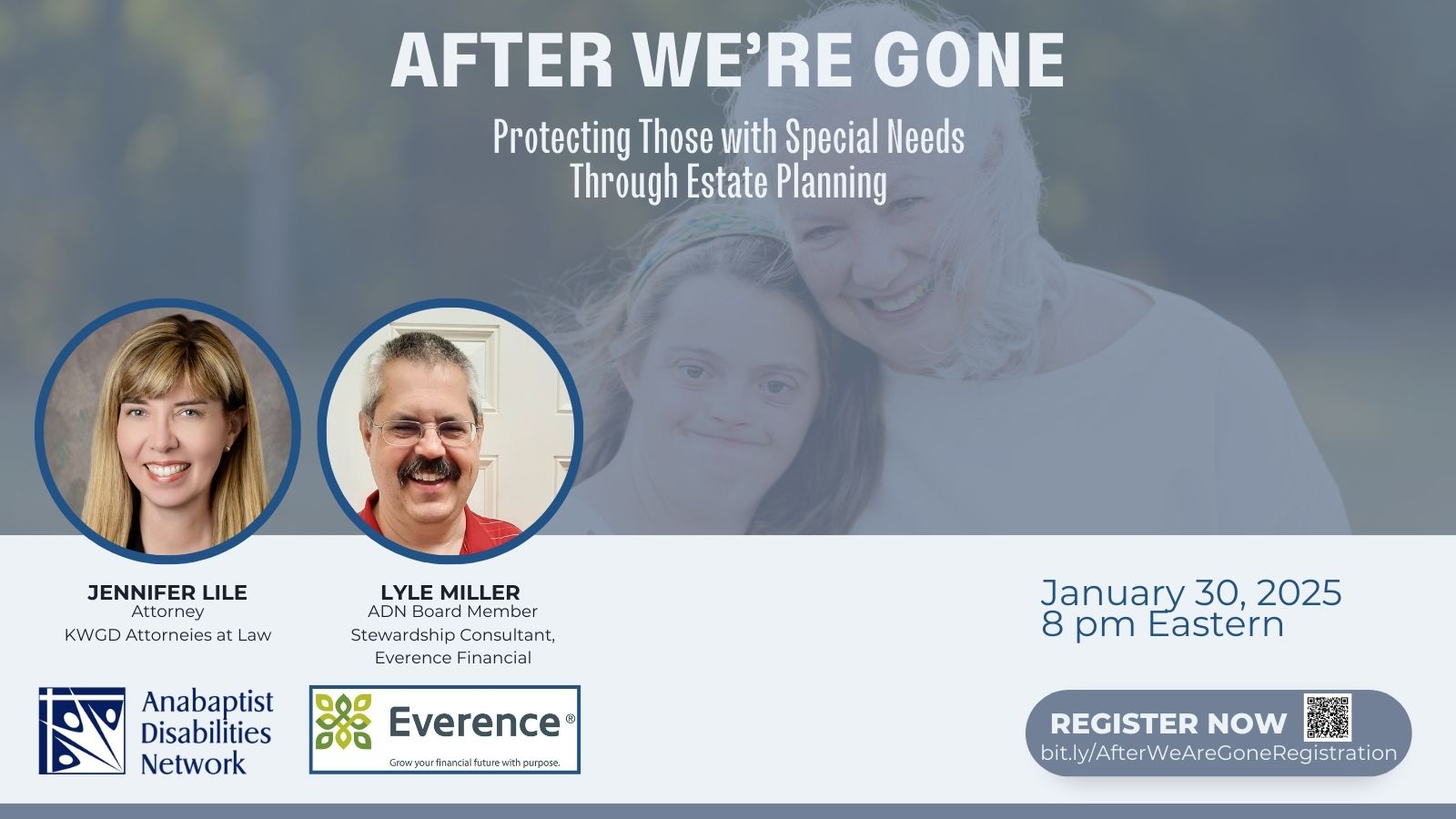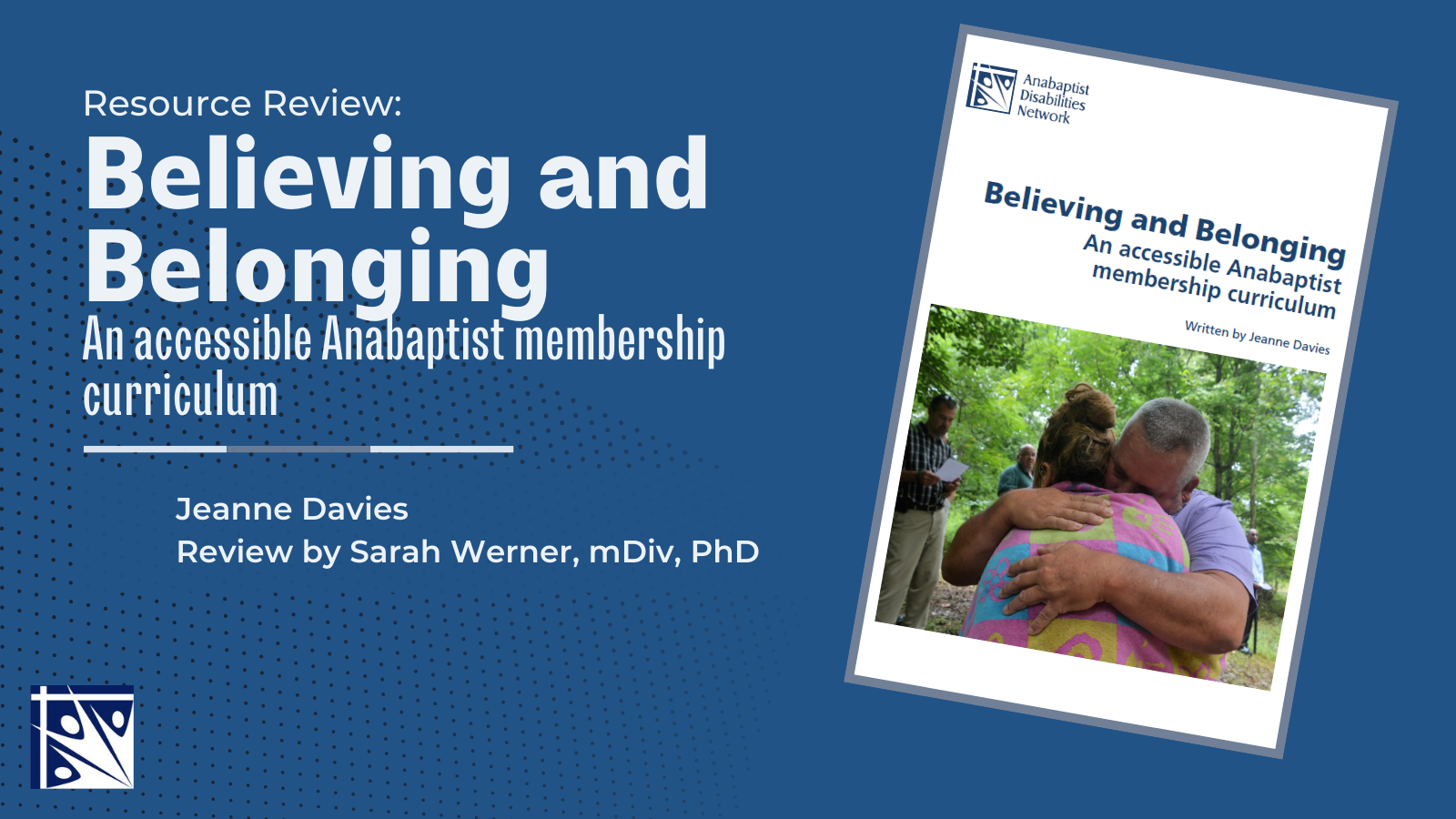Intellectual Disabilities
An intellectual disability is a limitation in reasoning, planning, problem solving, abstract thinking, understanding complex ideas, learning quickly, memory, or learning from experience. It also can include limitations in academic skills (reading, math) and social or practical skills. Intellectual disabilities are typically identified in childhood as a step to getting educational and practical support.
Each person’s experience of intellectual disability is unique. A limitation in one area does not necessarily mean a limitation in another. People who have intellectual disabilities experience the full range of human emotions, including joy, gratitude, affection, sadness, anger, or impatience. They are not “sunny” all the time. Each person has their unique abilities, insights, and gifts to share. We are all called to take the time to communicate simply with, listen carefully to, build friendships with, and honor the gifts of intellectually disabled people.
Tips for Including People with Intellectual Disabilities
For Congregations
- Include intellectually disabled children and adults in as many church programs and activities as possible.
- Identify and encourage the use of gifts and talents. Ways to serve can include (but are not limited to) testimonies, hospitality, prayer partners, singing in the choir, reading scripture or litany, leading in prayer, dramas, dance, cooking, or serving on committees.
- Be patient if reading aloud, praying or other public leadership takes more time. Still your heart and honor the gift offered.
- Use repeated liturgical responses, such as “Lord, have mercy,” or “Thanks be to God.”
- Use worship practices that involve all the senses – visual, auditory, or tactile.
- Sing worship songs that are easy to learn and memorize.
- Designate a person or family to welcome and accompany the person in worship and at other church gatherings, offering friendship and giving assistance as needed.
For Individuals
- Get to know people as individuals with distinct personalities, likes, and dislikes.
- Do not assume what a person can or cannot do. Presume intelligence.
- Treat intellectually disabled adults as adults. Do not treat them like children.
- Respect their autonomy and choices.
- Do not refer to adults with intellectual disabilities patronizingly as “kids” or being “special.”
- Use plain, simple language.
- Extend common courtesies, such as shaking hands.
- If you are having difficulty understanding what a person is saying, ask for clarification rather than pretending to understand.
- Prioritize building relationships and serving together over efficiency and productivity.
- Offer friendship outside of the church building. Invite the person out to lunch or to do an activity that you both would enjoy, such as a walk, a concert, a movie, a sporting event, or making arts or crafts.
Resources
Believing and Belonging is an accessible baptism and membership curriculum for adults with intellectual disabilities. Written at a third-grade reading level, this year-long curriculum prepares individuals for a decision about anabaptist baptism and membership.
Resources from Others
Recommended Reading
- Becoming the Baptized Body: Disability and the Practice of Christian Community by Sarah Jean Barton. Baptism offers the distinctive practice of Christian initiation, rooted in Jesus’ own baptism, ministry, death, and resurrection. Too often, however, people with intellectual disabilities are excluded from this core Christian practice and so barred from full inclusion in the life of discipleship. How can the work of the Triune God in baptism renew Christian imagination toward an embrace of baptismal identities and vocations among disabled Christians?
- A Constructive Theology of Intellectual Disability: Human Being as Mutuality and Response by Molly C. Haslam. Responding to how little theological research has been done on intellectual (as opposed to physical) disability, this book asks, on behalf of individuals with profound intellectual disabilities, what it means to be human. That question has traditionally been answered with an emphasis on an intellectual capacity—the ability to employ concepts or to make moral choices—and has ignored the value of individuals who lack such intellectual capacities. The author suggests, rather, that “human being” be understood in terms of participation in relationships of mutual responsiveness, which includes but is not limited to intellectual forms of communicating.
- God Beyond Words: Christian Theology and the Spiritual Experiences of People with Profound Intellectual Disabilities by Dr. Jill Harshaw. This book explores how theologians speak about the spiritual experiences of people with profound intellectual disabilities. It invites an interdisciplinary dialogue between new and traditional theological fields and asks why, after more than 30 years of intellectual disability theology, the impact on church life remains minimal so that debates around the right to basic inclusion continue to dominate.
- Margins of Grace: Becoming champions of faith and family in the midst of disability by Michelle Munger. This is a beautiful book full of grace and hope for parents and caregivers of people with disabilities, and for church leaders. Michelle Munger begins with her own story, as a parent of two children with autism, who struggled to find a welcoming congregation for their family. She then engages the reader in an exploration of how to advocate for inclusion based on relationship with God and others. Munger’s approach is rooted in her Christian faith and is deeply gracious. She offers practical advice for both families and congregations, as they seek to understand and adjust the margins that exclude people with disabilities from faith communities.
Faith-based Organizations
- Faith and Light is an international movement of communities of people with intellectual disabilities, their families, and friends, who meet together on a regular basis for Christian worship, to share friendship, and celebrate life.
- With Ministries is a non-denominational, ecumenical organization that provides resources that support faith formation and congregational inclusion with individuals with disability. (Formerly Friendship Ministries and the Christian Learning Center – CLC)
- Religion & Spirituality Division of the AAIDD (American Association on Intellectual and Developmental Disabilities) is an interfaith, interdisciplinary association of professional, ordained, and lay people who journey with people with developmental disabilities and their families.
Secular Organizations
- University Centers for Excellence in Developmental Disabilities: Centers in every U.S. state work with people with disabilities, family members, state and local government agencies, and community providers to provide training, technical assistance, service, research, and information sharing.
- State Councils on Developmental Disabilities: DD Councils in every U.S. state and territory promote self-determination, integration, and inclusion for all Americans with developmental disabilities. These are an excellent go-to resource for questions on the availability of services and supports for people with intellectual disabilities in your specific location.





